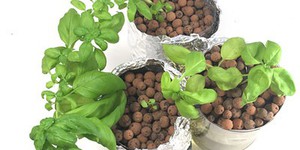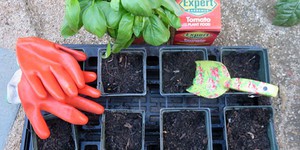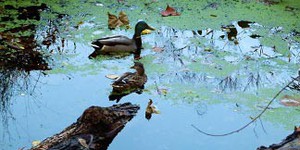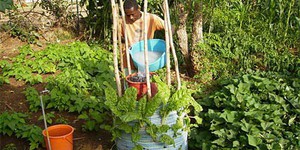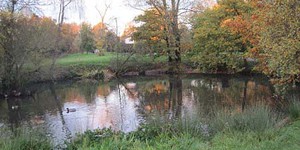Elementary School, Grow Plants Science Projects (11 results)
Discover and analyze which environmental conditions (soil, water, light, or temperature) may help plants grow. Or investigate if certain types of pollution harms plants.
|
What do plants need to grow? Most of us would answer that they need light, air, water, and soil. But by using a process called hydroponics, you can grow plants without soil! How does it work? Try this project and see for yourself!
Read more
Featured
Have you heard that garlic powder is supposed to inhibit the growth of bacteria? Which do you think would make a better disinfectant: a solution of garlic powder or a solution of bleach? This project shows you a straightforward way to compare the effectiveness of different disinfectants (or other antimicrobial agents), by measuring zones of inhibition on a culture plate.
Read more
Plants need nitrogen to grow healthy stems and leaves. Although nitrogen is the most abundant element in the air we breathe, that form of nitrogen cannot be used by plants. Nitrogen contained in fertilizer, on the other hand, is readily taken up by plants. In this experiment, you will compare plants grown without nitrogen fertilizer to plants grown with nitrogen fertilizer.
Read more
New
Artificial intelligence (AI) programs can now generate photorealistic pictures of people who do not exist in the real world. How can you tell if a picture is of a real person or a fake, AI-generated person? What features of the picture do people use to decide whether the face is real or AI-generated? In this project, you will explore these questions as you ask volunteers to look at both real and AI-generated pictures of human faces.
Read more
Chemicals from Earth's atmosphere are making their way down to the planet! Not in spaceships, but in rain. The acid rain can infiltrate ground water, lakes, and streams. How does acid rain affect aquatic ecosystems?
Read more
One way to conserve water is to find safe ways to use it more than once. Here is a project to test whether greywater (water that has been used for washing or bathing) can be used for watering ornamental plants.
Read more
You might not know it, but plants are able to sense their environment and actually respond appropriately. One of the key parameters that every plant must respond to is the direction of gravity: stems go up (opposite to the pull of gravity) and roots go down (in the same direction as the force of gravity). In this project, you will construct simple devices that hold several germinating seeds, which allow you to watch how growing rootlets respond as you rotate the devices, effectively altering…
Read more
New
Engineers are trying to tackle the world's ocean pollution problem using robots. Some robots, like Mr. Trash Wheel and the ship featured in this Mark Rober video, are stationary and collect trash as it flows out of rivers before it gets into the ocean. Others, like the Jellyfishbot, are mobile and can squeeze into narrower spaces to collect trash:
Can you build and test your own trash-skimming robot? If you do not have access to a natural body of water to test it in, you can use a bathtub or a…
Read more
Here is an interesting project that could be approached from several different scientific angles: Environmental Science, Weather & Atmosphere, Chemistry, or Plant Biology. You can probably think of your own variations to emphasize the scientific area that most interests you.
Read more
We all know that plants need sunlight and water to grow big and tall. But did you know that inside seeds are baby plants, and that the fragile baby plant inside the seed needs to be protected? If you've ever had a sunburn, you also know that the sun gives off harmful radiation and heat. How much radiation and heat can a seed handle? Find out using some radish seeds, an oven, and your microwave!
Read more
Some plants grow only in water-logged environments. These plants are usually native to wetlands and are important for the sustainability of aquatic ecosystems. Wetland ecosystems are very fragile and susceptible to the toxic dumping of sewage and fertilizer run-off from neighboring farm land. One very common aquatic plant called duckweed inhabits many wetland marshes. Duckweed grows by asexual reproduction and floats at the surface of the water with tiny roots extending into the water below.…
Read more
Like humans, plants can be negatively affected by overcrowding. Unlike humans, plants cannot get up and move to a new environment or explore how to utilize new resources. This experiment will explore the effects of crowding (population density) on the growth and health of plants.
Read more
Did you know that when you use fertilizer in your garden, it can eventually reach a lake, stream, or pond? There are many different chemicals present in fertilizers. How will they affect the aquatic organisms in the ecosystem? In this science project you will get to find out!
Read more
|
Explore Our Science Videos
Make a Water Strider - STEM Activity
Why Won't it Mix? Discover the Brazil Nut Effect
Build a Simple Electric Motor


